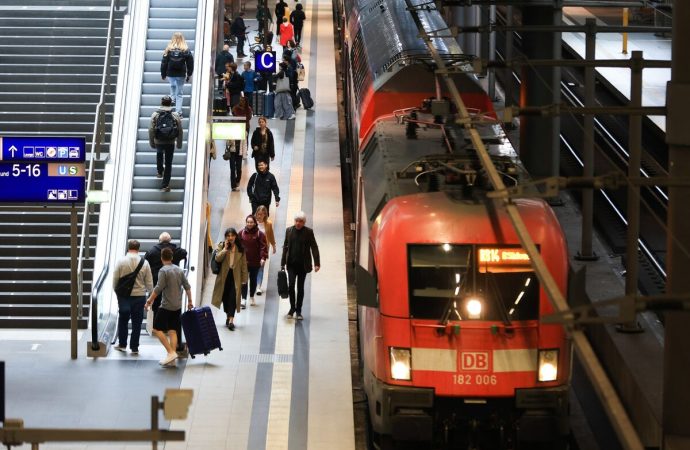Introduction Chaos ensues across Germany as the national rail network comes to a near standstill, paralyzed by a six-day strike initiated by drivers. This article delves into the motivations behind the strike, the ripple effects on commuters and businesses, and the German rail strike potential consequences for labor relations and the broader economy. The Drivers’
Introduction
Chaos ensues across Germany as the national rail network comes to a near standstill, paralyzed by a six-day strike initiated by drivers. This article delves into the motivations behind the strike, the ripple effects on commuters and businesses, and the German rail strike potential consequences for labor relations and the broader economy.
The Drivers’ Strike
1. Wage and Working Condition Disputes:
The drivers’ strike is rooted in disputes over wages and working conditions. Negotiations between the rail operators and the drivers’ union have reached an impasse, leading to this significant and impactful labor action.
2. Duration and Scale:
The decision to embark on a six-day strike amplifies the scale of disruption. The prolonged nature of the strike intensifies its impact, affecting not only daily commuters but also freight transport, supply chains, and various industries dependent on a functioning rail network.
Impact on Commuters and Businesses
1. Commuter Struggles:
Daily commuters face severe challenges as their usual mode of transportation grinds to a halt. Canceled trains, overcrowded alternatives, and extended travel times create significant disruptions, impacting the routines and well-being of thousands.
2. Economic Repercussions:
The strike’s economic consequences ripple beyond frustrated commuters. Businesses relying on efficient rail transport for logistics and supply chain operations experience delays and increased operational costs, contributing to a broader economic impact.
Comparative Overview: Recent Strikes in Europe
| Country | Industry Affected | Primary Grievances |
|---|---|---|
| Germany | Rail transport | Wage and working condition disputes |
| France | Aviation | Pension reforms, labor conditions |
| United Kingdom | Public services | Pay disparities, working hours |
Potential Implications

This image is taken from google.com
1. Labor-Management Relations:
The protracted strike raises questions about labor-management relations in Germany. The outcome of the negotiations and the resolution of the strike could set a precedent for future disputes and the dynamics between workers and employers.
2. Economic Slowdown Concerns:
The strike’s impact on crucial sectors of the economy raises concerns about a potential economic slowdown. Delays in transportation, production interruptions, and increased costs could contribute to a challenging economic environment.
Government and Public Response
1. Calls for Resolution:
The government faces pressure to intervene and facilitate a resolution between the drivers’ union and rail operators. Calls for dialogue and mediation increase as the strike’s effects intensify, prompting concerns about broader societal disruptions.
2. Public Sympathy and Criticism:
Public sentiment becomes a key factor as citizens grapple with the consequences of the strike. While some may sympathize with the drivers’ demands, others criticize the disruption, calling for swift resolutions to minimize the impact on daily life.
Conclusion
As the German rail network grinds to a halt during this six-day strike, the nation faces a critical juncture that goes beyond mere transportation disruptions. The negotiations’ outcome and the subsequent impact on labor relations and the economy will be closely monitored, shaping the narrative of worker empowerment and economic stability in the weeks to come.

















Leave a Comment
Your email address will not be published. Required fields are marked with *